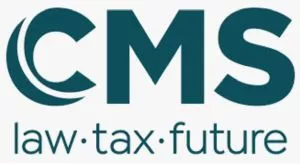- within Media, Telecoms, IT, Entertainment and Wealth Management topic(s)
Since the law of 29 March 2023 on protection against moral harassment in the workplace (the “Law”) came into force, employees have become more willing to speak out. Two years after its adoption, it's undeniable that reports of harassment have increased within companies, placing employers under both a legal and moral responsibility to take action in such situations.
For example, in 2023, 1,379 requests concerning harassment were recorded by the Labour and Mines Inspectorate (“ITM”), compared to 632 in 2022, i.e. prior to the adoption of the Law.
More recently, in 2024, 1,565 requests were recorded by the ITM regarding harassment.
Pursuant to the Law, employers are required to take:
Preventive measures:
To this end, employers are required to implement internal policies and procedures to raise awareness and to establish an appropriate framework for preventing and managing moral harassment.
This prevention is based in particular on regular training in complaint management for employees, the establishment of secure reporting channels, and the provision of support mechanisms for victims of harassment.
Repressive measures:
In the event of a report or finding of moral harassment, the employer must take the necessary measures to immediately stop such behaviour. Failure to act or inappropriate management of such situations may engage the liability of the company, and the employee may refer the matter to the ITM.
The employer may also be fined between EUR 251 and 2.500, if they commit or fail to prevent moral harassment. The employer is therefore required to investigate the allegations to clarify them and, where appropriate, take the necessary actions.
Due to the sensitive nature of these cases and potential lack of impartiality of the persons involved, it is often necessary to outsource investigations and entrust them to third parties.
CMS Luxembourg is regularly mandated to conduct such investigations in companies facing complaints of moral harassment and to assist them in dealing with these sensitive situations.
Why ask a law firm to carry out the investigation?
- Impartiality and neutrality: Lawyers have no hierarchical or personal ties with the parties involved, which guarantees an objective and impartial approach to the investigation,
- Legal expertise: Lawyers have in-depth knowledge of the Law and applicable procedures, which ensures that the investigation is compliant with legal requirements,
- Enhanced confidentiality: Lawyers are bound by professional secrecy, thereby ensuring the confidentiality of the information gathered and protecting the individuals involved,
- Risk management: Lawyers when conducting an investigation help identify and limit legal, social and reputational risks for the company,
- Support in implementing follow-up measures: Lawyers can advise the company on the measures to be taken at the end of the investigation, whether these involve disciplinary sanctions, mediation or preventive actions.
Support usually begins with an assessment of the relevance of the investigation, followed by the preparation and conduct of the investigation, and concludes with the drafting of a report containing the findings of the investigation and recommendations to the company on the actions to be taken.
The content of this article is intended to provide a general guide to the subject matter. Specialist advice should be sought about your specific circumstances.
[View Source]




